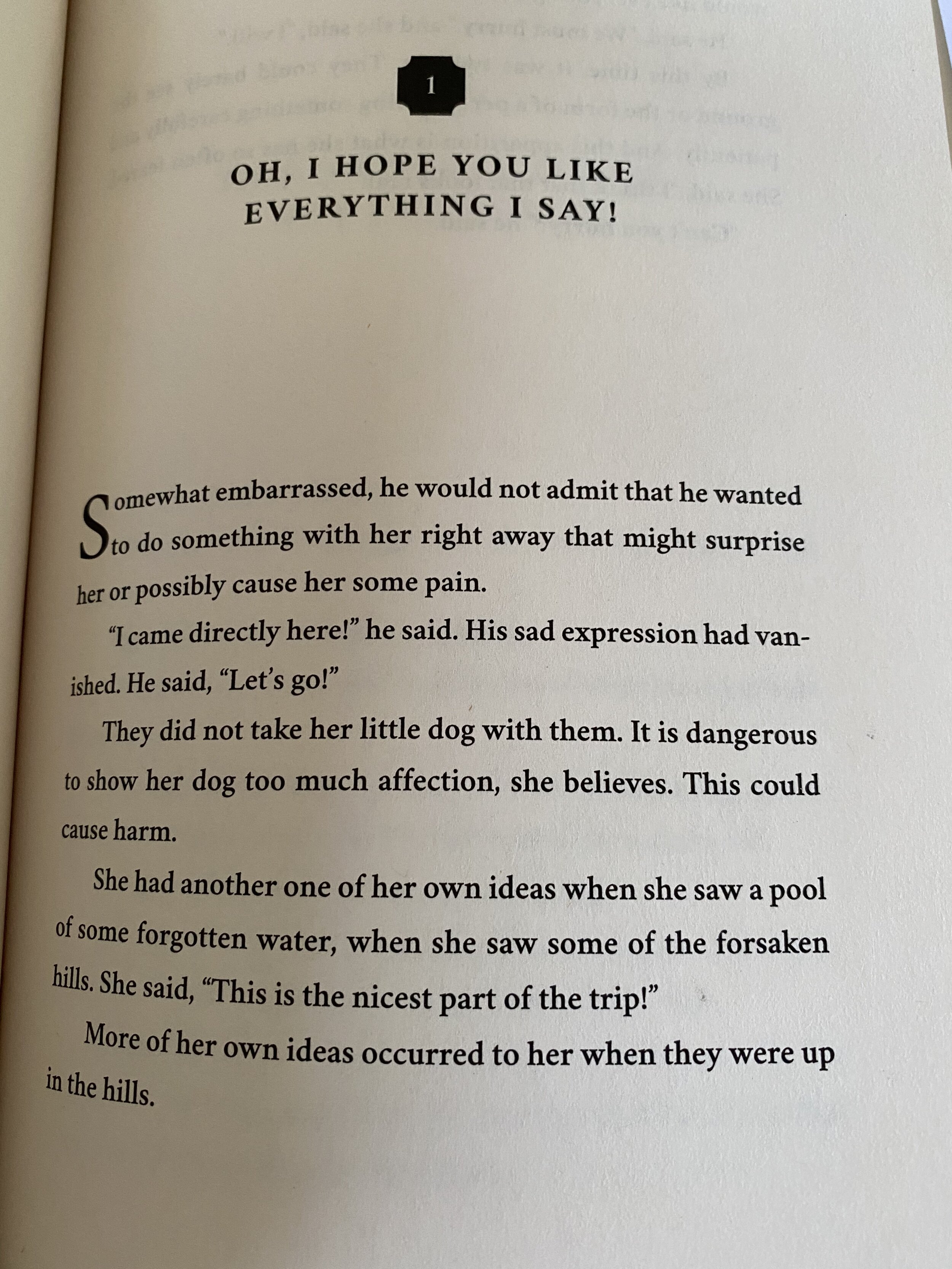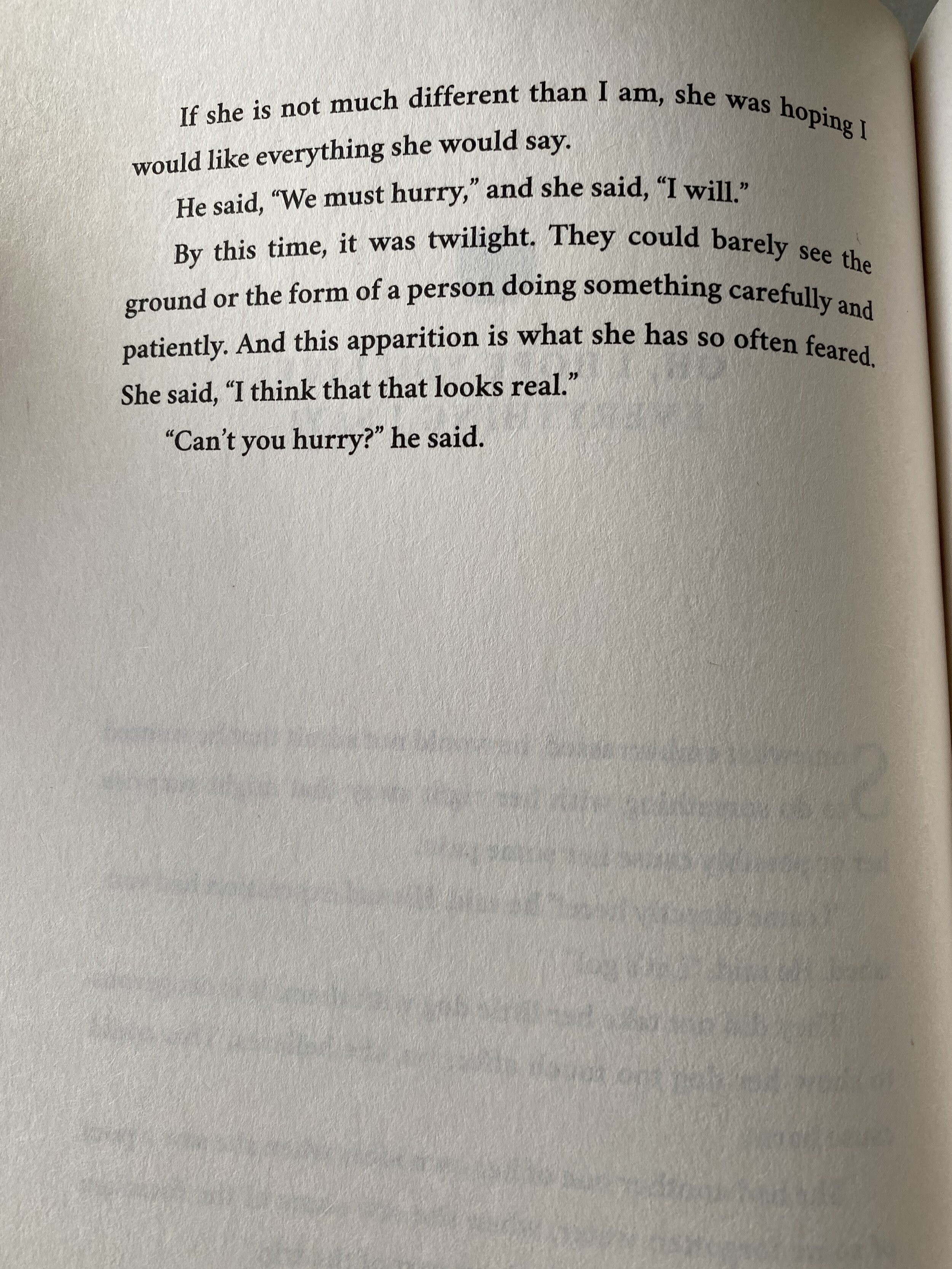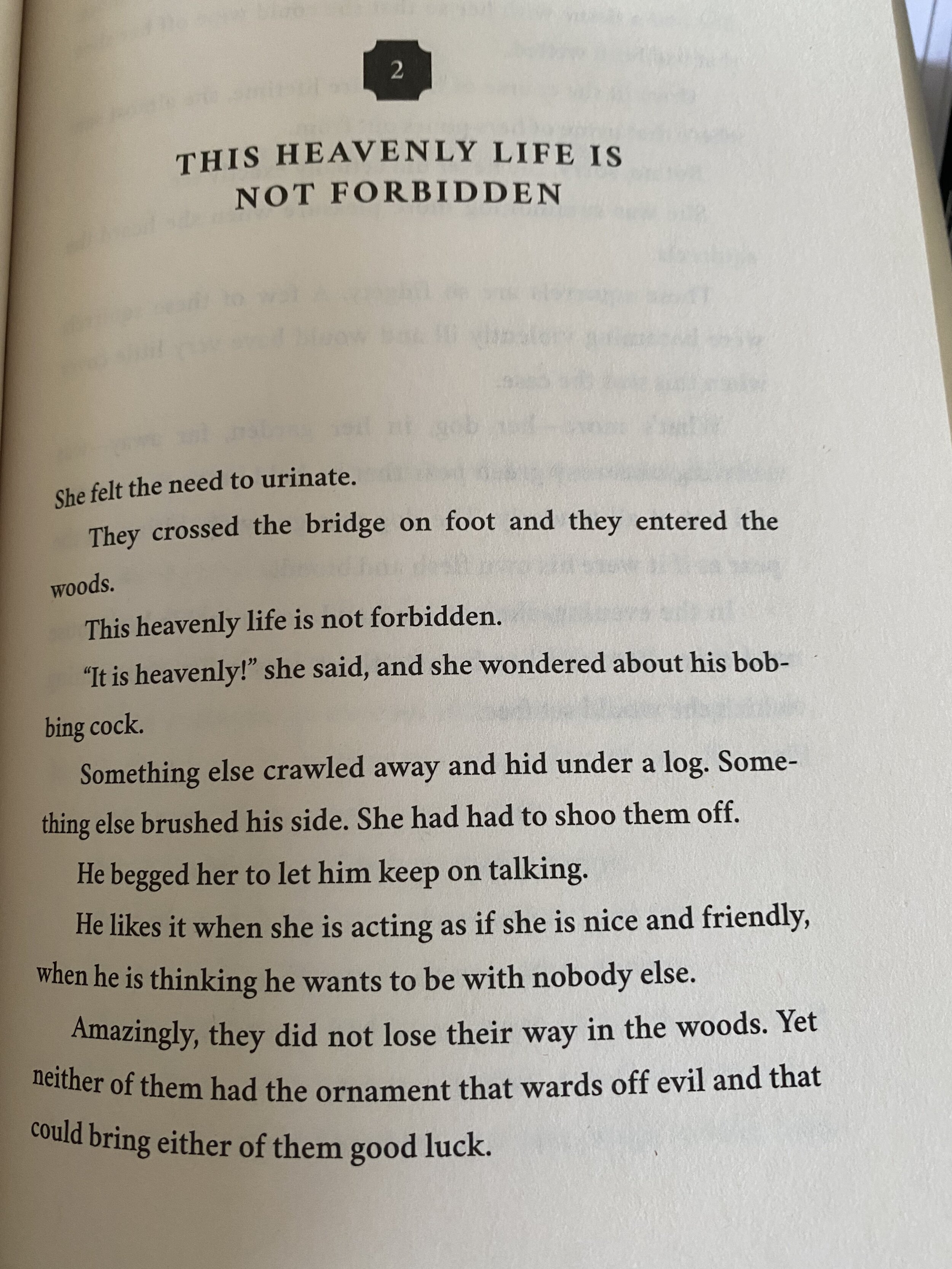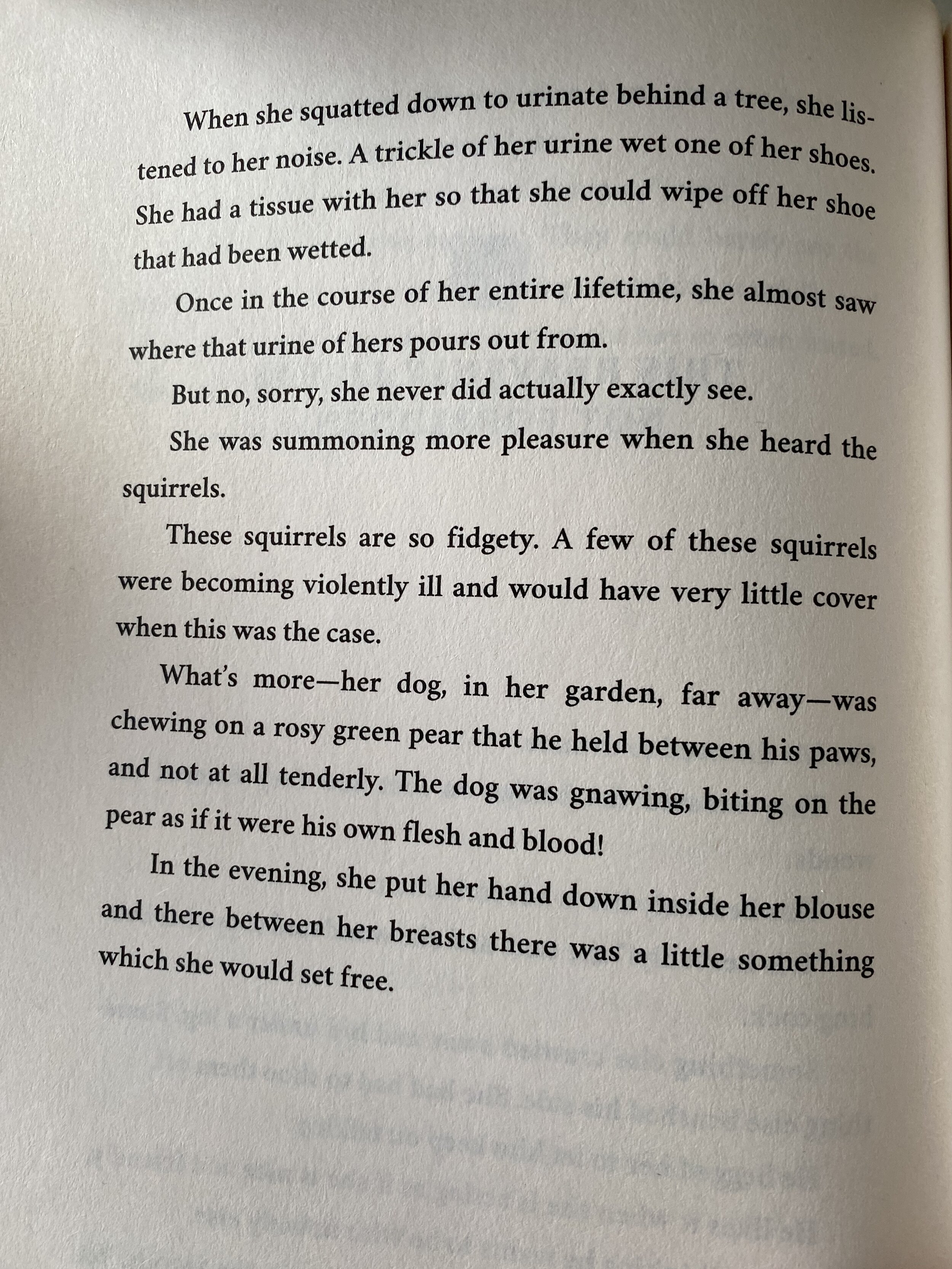“It is one of those lovely times when crisis does not come as a surprise,” writes Diane Williams in what could be a keynote on tonal effects rather than a line from a short fiction titled “An Opening Chat.” Nothing is more surprising than discovering that The Collected Short Stories of Diane Williams (Soho Press, 2018) still scorches my eyes when I read it. The tips of my fingers still tingle when I crack its three-Bible-stack-thick spine. O, I’d leave a copy on every hotel nightstand if I had the time, money, patience, and institutional relevance.
But I have none of these things. What I have: thoughts about Stupefication, the novella tucked near the center of the collection, with the following epigraph attributed to Several of My Neighbors:
Is it necessary to state a guarantee of my goodwill?
If they come in, they go right back out again.
The narrator signals they will be adapting a village omniscience to the material and emotional demands of American suburbia. As with other titles by Williams, the chapter titles stage the stories, if by stage one means an abandoned basement and by story one means miraculous alienation.
The first chapter, “Oh, I Hope You Like Everything I Say!,” turns out to be attributed to no one, if by no one means divinity. The omniscient narrator describes a male and a female as they navigate the stakes of a relationship, which is to say: what they want from another while also wanting nondescript things from the world. And so it begins….
Williams drops qualifiers like raw confetti at a church bingo party in order to elicit the excitable vagueness, the sense of something important happening, while also marking it as typical, ordinary, the usual scissored paper someone will later sweep from the floor.
The distance between the female character’s thoughts and words are magniloquent. For example, she has “her own ideas” when spotting old water and forsaken hills, but what she says aloud is: “This is the nicest part of the trip!” Speaking isn’t a form of communication among characters so much as a conversation between the narrator and the strange humans she lays on the page. The male doesn’t respond to the nicest part of the trip; we remain inside the female’s head, the frisson of her private thoughts.
Then, on the second page, the narrator peeks in with an “I” that isn’t tied to the male or female characters. In this weird intrusion, the narrator compares itself to the female: “If she is not much different than I am, she was hoping I would like everything she would say.”
The reader scratches her head, distracted from the male-female relationship. And Williams pokes her pen a little deeper into the reader’s unprotected eye by letting the female make an “I” statement in the next line. This is how the first chapter of the novella closes.
In the second chapter, we have the same structure: a fascinating title (one could populate whole zines with theories on Williams’ use of titling to subvert conventional narration) + a fact about a character which creates the possibility of action + fragmented, discontinuous descriptions which don’t develop into the intimacy of conflict + extraordinary chunks of awkward syntax.
The narrator steps in to declaim the title in the third line, and Williams tucks in the edges of the statement like dough on a perfect pig-in-a-blanket. It feels like part of the story. It feels like the narrator doesn’t want to intrude so much as to perform a sort of intrusiveness, which is to say suburban neighborliness.
There is the miracle of not getting lost, despite the absence of a magic ornament. And there is the way in which “that” dangles over the last line, suggesting it could go either way: that it could bring them good luck, or that it being lost could bring them good luck.
The initial problem of urinating is still present. She pees near a tree. “The squirrels are so fidgety.” The animals and objects are asked to carry the inappropriate feelings of the characters, a classic Williams narrative effect.
Notice how the memory of her dog intrudes on the squirrels’ violent illness—and how intensely the dog interacts with the pear. Each of these mental meanders feels more real, more actual, than the events of the story. And the reader is left in suspense, hanging between two breasts and the possibility of freedom, which may involve small objects.
The third chapter is titled IT WAS A JOYFUL TIME.
One is inclined to change it, to leave the overwrought marvel between the breasts and notice the joyful scene. His hand in the tent, zipping and unzipping.
“You sound sexed-up!” she exclaimed.
The dog died and she did not miss it—missed no part of its frisking, its wet nose on her cheek at dusk, its demands for bones or begonias, depending.
The campsite had been waiting for them to arrive. He found a receipt for vodka near the charcoal grill. But no charcoal. A wet sock crushed into the dirt.
“All of these vines—” she said, waving her hand, listening to her bracelets argue and jangle. The whole vine-ness of the scene. And the yellow tent, lying there, gilded by sunset.
He kept zipping and unzipping, putting things in and exiting. She didn’t know where to sit, really. There was nowhere to watch from.
Except for the stump.
He bounced his flashlight over the lower portions of the pine trees. An unlikely bullfrog, pinned against bark. The zippering, again.
The fourth chapter: FREEDOM IS LIKE BLUEGRASS!
She couldn’t sleep. What did you expect? Neither could he. Peas in a pod. The squirrels were atrocious.
“They are omnivorous,” he said of the bears in the news. Some animals eat anything, and one should not trust them with entire hearts or emotional openness.
Nearby, the younger guys had a radio and a fire and someone kept giggling. Freedom is like bluegrass.
“They must have appeared after darkness,” she said.
The tent was so dark it swallowed the flashlight. An old piece of tinsel lay in the corner from Christmas. A retiree.
“It’s been so long since then,” he said. Dusk could take aeons. Inside the endless, they had already eaten a hot dog with mustard she found in the glove compartment. The mustard waited inside a white envelope. It waited for them, and this.
His hands made rabbits appear on the nylon walls. She added a parrot. By then, he smelled naked, that moistness attaching itself to old sleeping bags.
They had all been young, once—young once or twice—stupid with fire and music. Ach, the giggling.
“Let me see your eyes,” he said, in the dark wet.
*
Amazingly, here is the actual third chapter of the novella as penned by the insatiable Diane Williams for your reading pleasure and disturbance. Clean bedding—everything!
As for the fourth chapter, it is actually titled “Cautiously, She Looked Around,” which has nothing to do with bluegrass. It does, however, feature a jar of red jam, gold embroidery, soft light, and full-fledged cocoa bread pudding which you taste in The Collected Short Stories of Diane Williams.
As for Williams, herself, the author, maybe she tweets. Certainly she spoke to Michael Silverblatt in the Bookworm podcast which deserves credit for the photo I borrowed.
Ultimately, like a hard-boiled omelette, truth boils down to what the narrator elects, specifically, in “The Power of Performance,” where we are assured: “Customary noise can occur in thick clumps, all of which can be turned sideways.” As all ending depends on positioning, an imp’s posture becomes an imposture if one lingers in clumps too long. Tarry on, interior monologue, carry those tons along.





